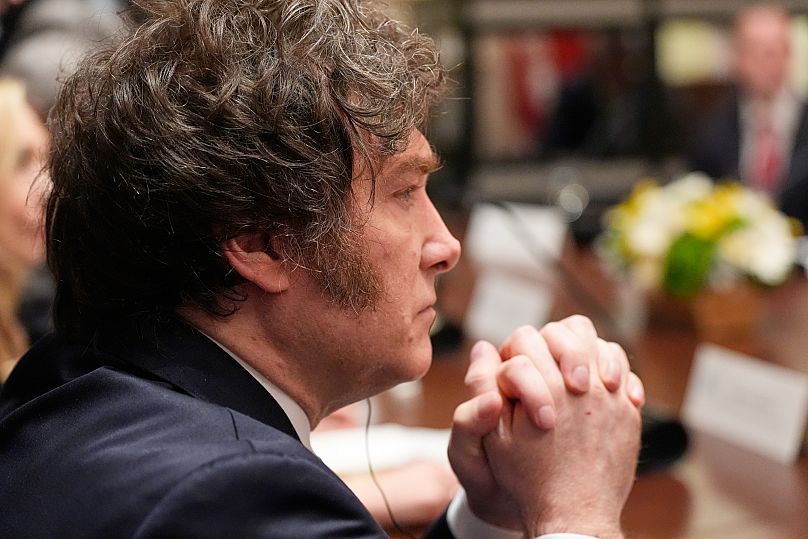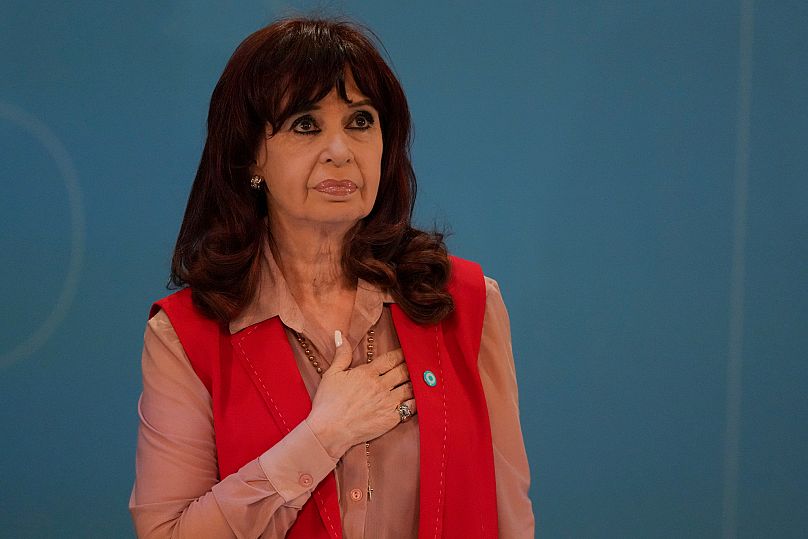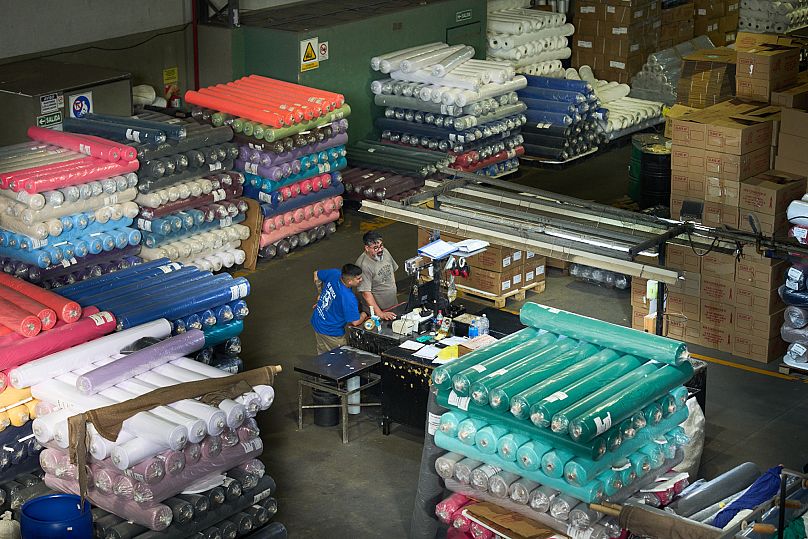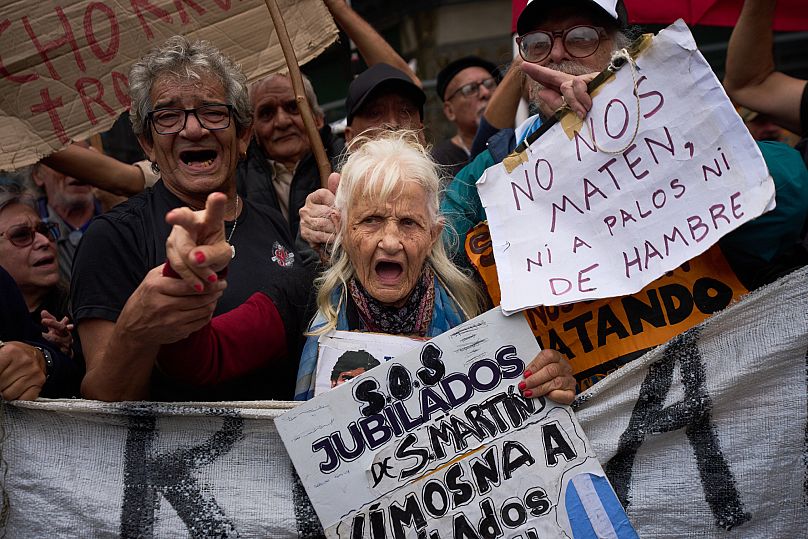Trump insisted that a recent $20 billion (€17 billion) assistance package to Argentina, which administration officials strenuously deny is a bailout, was about helping “our neighbours."
US President Donald Trump threatened to withdraw financial assistance for Argentina on Tuesday if his ally, President Javier Milei, loses crucial legislative elections later this month.
 ADVERTISEMENT
ADVERTISEMENT
 ADVERTISEMENT
ADVERTISEMENT
Referring to an opponent who was "extremely far-left" and encompassed a "philosophy that got Argentina into this problem in the first place," Trump warned that the United States wouldn't "waste our time" with assistance for Buenos Aires if Milei doesn't win.
In addition to the midterms that will be a referendum on his policies, Milei himself is up for re-election in 2027.
"We're not going to let somebody get into office and squander the taxpayer money from this country. I'm not gonna let it happen," Trump said from the Cabinet Room as he prepared to eat lunch with Milei.
"If he loses, we are not going to be generous with Argentina."
Trump insisted that a $20 billion (€17 billion) assistance package to Argentina, which administration officials strenuously deny is a bailout, was about helping "our neighbours" rather than any ties to the upcoming midterms.
"It's just helping a great philosophy take over a great country," the US president said. "Argentina is one of the most beautiful countries that I've ever seen and we want to see it succeed. It's very simple."
US Treasury Secretary Scott Bessent added that the administration believed Milei's coalition in the upcoming midterms would "do quite well and continue his reform agenda."
As he opened his lunch with Milei, Trump noted that the Argentine president, who is an economist by trade, is "MAGA all the way."
That traditionally refers to his campaign slogan, "Make America Great Again," but this time, it also meant "Make Argentina Great Again."
Trump's meeting with Milei was already making waves back in Argentina, with Cristina Fernandez de Kirchner, leader of the left-leaning Peronist opposition and a two-term former president, writing on social media: "Trump to Milei: Our agreements are subject to whoever wins election. Argentines...you know what to do!"
The former president is serving a six-year sentence under house arrest since June for corruption, but she remains the most influential leader of Peronism, an ideologically flexible, labour rights-focused populist movement, which emerged in the 1940s and dominated politics for decades.
Ahead of and during his White House meeting, Milei lavished praise on Trump, deploying a tactic that has helped transform his cash-strapped country into one of the Trump administration’s closest allies.
Milei, speaking in Spanish, said he is "very honoured, especially in this moment when we are giving thanks for Trump's great leadership."
"We can follow a peaceful route and make Argentina a strong example for freedom and prosperity," Milei said.
Turning to Trump in a crisis
The Trump administration made a highly unusual decision to intervene in Argentina's currency market after Milei's party suffered a landslide loss in a local election last month.
Along with setbacks in the opposition-dominated Congress, the party's crushing defeat created a crisis of confidence as voters in Buenos Aires Province registered their frustration with rising unemployment, contracting economic activity and brewing corruption scandals.
Alarmed that this could herald the end of popular support for Milei's free-market programme, investors dumped Argentine bonds and sold off the peso.
Argentina's Treasury began haemorrhaging precious dollar reserves at a feverish pace, trying shore up the currency and keep its exchange rate within the trading band set as part of the country’s recent $20 billion deal with the International Monetary Fund (IMF).
But as the peso continued to slide, Milei grew desperate.
He met with Trump on 23 September while in New York for the UN General Assembly and a flurry of back-slapping and mutual flattery between the two quickly gave way to Beesent publicly promising Argentina a lifeline of $20 billion.
There has been no word on how Argentina, the IMF's largest debtor, will end up paying the US back its $20 billion, which comes on top of the IMF's own loan for the same amount.
And that came on top of an earlier IMF loan for $40 billion (€34 billion).
Despite all the help, Milei's government already missed the IMF's early targets for rebuilding currency reserves.
"The US should be concerned that Argentina has had to return for $20 billion so quickly after getting $14 billion upfront from the IMF," said Brad Setser, a former Treasury official now at the Council on Foreign Relations.
Argentina's libertarian president, a fervent admirer of Trump, came to office in late 2023 on the bold promise that he would take a chainsaw to reckless public spending that he inherited from his left-wing predecessor.
But his radical austerity programme has been painful, with no economic revival in sight and Argentinians are losing patience.














